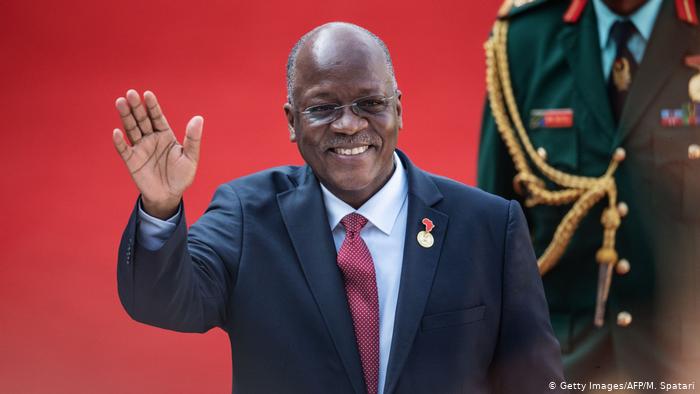Malawi-Tanzania risky Covid-19 ties
Tanzanian populist president John Pombe Magufuli is dead, yet a spillover of his resistance to Covid-19 prevention persists in Malawi’s northern border districts of Karonga and Chitipa.
Communities at the northern tip of Malawi defy all prescribed preventive measures to control Covid-19 transmission.

From congested markets to sports events, no one seems to care about the virus that has so far claimed 1 114 lives from 33 400 confirmed cases in the country.
On a sunny weekend, Chembe Football Club of Tanzania crosses a 30-metre narrow improvised bridge to play Chanya of Chitipa in Misuku Hills just a few kilometres across the Songwe River.
Several other football clubs on both sides of the border exchange similar visits. The cross-border exchange visits between neighbouring villages extend to other social calls such as business trips, prayers, funerals, weddings and farming.
The free movement of people and goods mirrors the open border policy promoted by the Southern Africa Development Community (Sadc) to boost trade and interaction between member States.
However, it may as well open corridors of infection for highly contagious diseases such as Covid-19, now in a third wave in Kenya.
Currently, the unregulated cross-border exchanges that defy Covid-19 dos and don’ts put travellers at risk of catching and transmitting the coronavirus.
Tanzania’s laxity towards the global pandemic contradicts and downplays the science approved by the World Health Organisation, Africa Centres for Disease Control and Prevention and other public health think-tanks.
The country exalts prayers and herbal steam to fight the pandemic, a view that is strangely gaining ground in the northern part of Malawi.
While the whole nation is at war with the pandemic that has left Malawi in a State of National Disaster declared by President Lazarus Chakwera 75 days ago, villagers in Chitipa remain relaxed and unconcerned.
To them, Covid-19 is just like any other disease and must be treated as such.
This perception resembles the tone of their Tanzanian neighbours, who stopped releasing Covid-19 figures and wearing face masks and rejected vaccines.
The Government of Tanzania has downplayed the pandemic even in the wake of publicly known cases or deaths.
“I detest hearing people glorifying corona and Aids. Let us simply pray for those suffering from these diseases, but we should not feel defeated by the diseases,” says Kamoza Mukumbwa of Misuku.
She is not alone. The call to prayers to exorcise Covid-19 in the border area is growing.
Personal protective equipment (PPE) such as face masks are rarely worn in public. Hand sanitisers are unavailable and handwashing points are scarce. There is no adherence to physical distancing. Risky handshakes have returned. Covid-19 messages are few and frowned upon. Since the onset of the pandemic in December 2019, health personnel have not conducted any coronavirus tests in Misuku.
“I only try to adhere to Covid-19 measures when I see a police officer in uniform,” says King Mwogha.
Several villagers either flee or scramble for some improvised face mask when they see a police officer. Some vendors abandon their businesses at the sight of a law enforcer.
Chitipa district health promotion officer Masida Nyirongo is worried that residents continue to do business as usual despite continuous community sensitisation on Covid-19, case management and screening at official points of entry.
Malawi has rolled out Covid-19 vaccination currently in phase one, which targets at-risk populations.
Chitipa started immunisation on March 15, targeting health workers, security personnel, people with underlying conditions that increase the risk of dying from Covid-19 and the elderly aged at least 60.
The clash of viewpoints between Malawi and Tanzania in the fight against Covid-19 complicates health workers’ inroads to deal with communities forked between streams of opposing views.
The community is expected to help report suspected cases and disseminate Covid-19 messages, says Nyirongo.
“We have volunteers in the community, randomly we go out to sensitise the community,” he explains.
Chitipa has confirmed about 250 cases, including two active ones, 221 recoveries and 21 deaths.
Health workers at Misuku Health Centre say there is more to the absence of Covid-19 fear than the Tanzania scenario.
“People have never seen anyone suffering or dying from Covid-19. There have never been any tests of Covid-19 conducted here,” says a member of staff at the eight-bed facility which serves 24 002 clients within its 35-kilometre (km) radius.
According to Chitipa District Council socio-economic profile, only one out of 11 health centres in Chitipa meet the minimum staffing of two clinicians, two nurses and one environmental health officer.
Local health workers are only instructed to observe signs and symptoms of Covid-19 and report to Chitipa District Hospital, some 40 km away, and Kaseye Community Hospital, 35 km from Misuku Health Centre.
“We can only report if we suspect someone has the coronavirus, unfortunately the signs of coronavirus are similar to those of other diseases. So we treat normally all the cases that arrive here,” says the health worker at Misuku.
This is the situation Malawians in the border region along the Songwe River face in the fight against the Covid-19, drawing support from an understaffed and fragile health system overrun by a philosophy that reassures its citizens that only God protects and cures.
For them, the post-Magufuli era is no end to Covid-19 cynicism.





